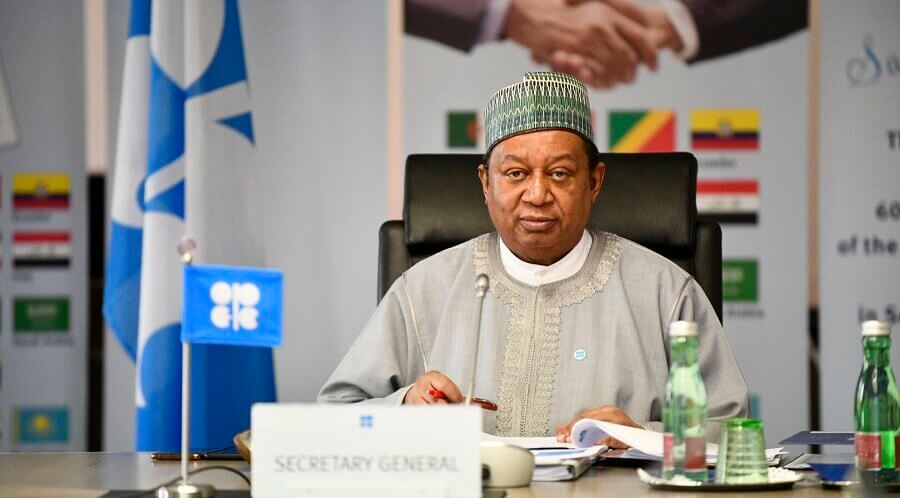In the heat of the war between Russia and Ukraine, the Secretary-General of the Organisation of Petroleum Exporting Countries, Mohammad Barkindo, has said that the cartel will continue to safeguard supplies in the energy market.
Barkindo who said this at CERAWeek, an industry conference in Houston, noted that in the face of skyrocketing energy prices, the group’s mission remains to act as a reliable supplier.
Advertisement
The conference had as it’s theme, “Assuring stability in energy market.”
He said contrary to claims in some quarters of supply shortfall, there is no shortage of oil in the physical market.
Barkindo said while the futures markets are “paper barrels, market supplies are guaranteed in the physical oil market.
He described OPEC as a friendly organisation and not a political one, adding that what it does is to assist the market maintain stability.
Advertisement
The United States and the United Kingdom have banned the importation of oil and gas from Russia.
The announcement comes after the European Union Commission said it would reduce EU demand for Russian gas due to the invasion of Ukraine.
The EU relies on Russia for 40 per cent of its gas. Around six per cent of UK oil imports come from Russia, while the US depends on Russia for eight per cent of oil and refined products.
The UK Prime Minister, Boris Johnson said on Tuesday that, “In another economic blow to the Putin regime following the illegal invasion of Ukraine, the UK will move away from dependence on Russian oil throughout this year, building on our severe package of international economic sanctions.
He added, “Working with industry, we are confident that this can be achieved over the course of the year, providing enough time for companies to adjust and ensuring consumers are protected.”
Advertisement
On Monday, crude oil prices rose $139 per barrel following the conflict between Ukraine and Russia.
In a tweet, the US President, Joe Biden had said the ban would lead to a rise in oil prices.
He said, “This decision today is not without costs here at home. Putin’s war is already hurting American families at the pump — and this will drive up costs further. So, I will take every step we can to minimize Putin’s price hike here at home.
“In coordination with our partners, we have already announced a collective release of 60 million barrels of oil from our Strategic Petroleum Reserves — half of that from the United States.
“We’re taking steps to ensure a reliable supply of global energy. And we’re going to keep working with every tool at our disposal to protect American families and businesses.”
But the OPEC Boss said that the oil-producing alliance has “no control over current events” and that geopolitics have now taken over and are “dictating the pace of the market.”
Advertisement
Despite supply concerns, OPEC and its allies, a group known as OPEC+, have opted to keep production steady.
The group last met on March 2, deciding to stick to a previously agreed-upon schedule to increase output by 400,000 barrels per day in April.
The move is part of the group’s unwinding of the almost 10 million barrels per day it pulled from the market in April 2020 as the pandemic sapped demand for petroleum products.
Russia, which is part of OPEC+, is one of the world’s largest oil-producing nations and the world’s second-largest producer of natural gas.
Financial sanctions against the country by the U.S. and allies have had indirect consequences on the country’s energy complex, and officials have said more sanctions could be coming.
Barkindo while describing the lasting impact of Russia’s invasion said, “We are facing what is likely to be a global game-changer in terms of the energy transition.
“It is important to keep communication lines open, especially in times of crisis like the one the world is facing today.”
“All we can do is to stay the course
“I have heard from several speakers here at CERAweek that current tightness in the market condition might be creating some demand destruction.
“Even as that might be the case, the other side of the equation is probably more critical at the moment, which is supply is increasingly lagging behind.”
When asked why the OPEC and its allies did not just end all restrictions on output at their meeting last week, Barkindo said the situation in oil markets had developed since the group met on March 2.



